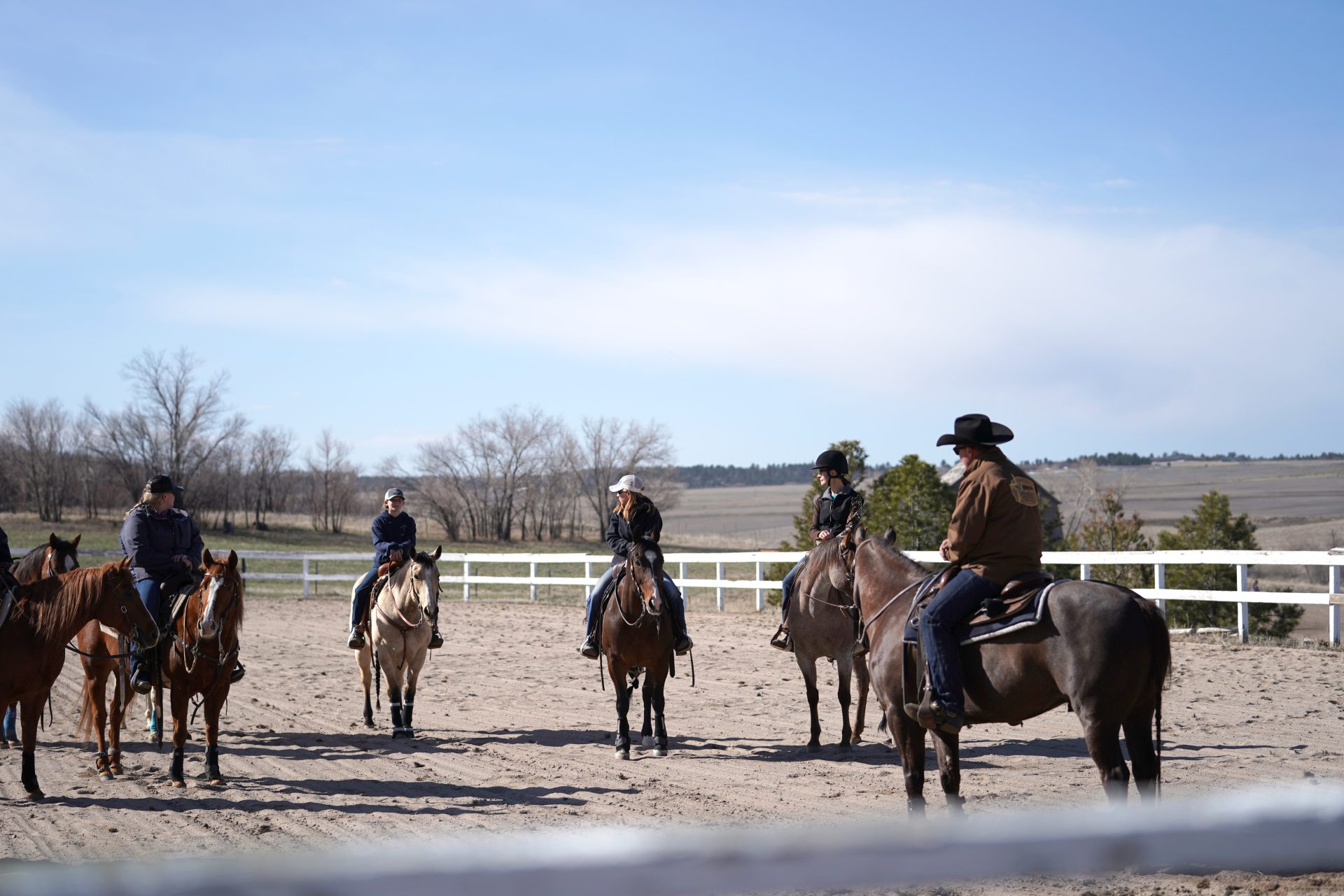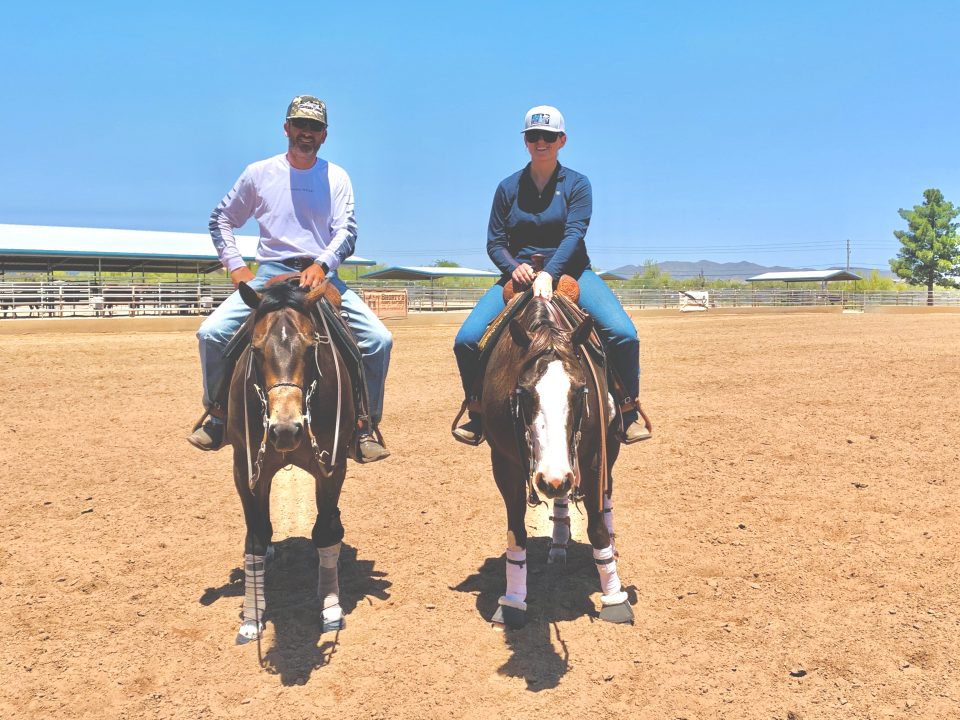By ensuring that you have the appropriate policies in place, you’ll keep yourself protected when hosting a clinic on your property.
By Kristin Pitzer

At some point in your career, you might consider hosting a clinic as a way to meet new prospective clients and give back to the industry by sharing the knowledge you’ve gained as a trainer. Before you start planning the topics you’ll cover, days to schedule it, or even the lunch menu, though, you need to assess what risks you might face.
When you bring people to your facility, whether they’re riders, auditors, or parents who are just there to watch, you could assume liability for them if you’re not properly covered, warns Jordan Willette, an attorney based in Phoenix and San Francisco. To protect yourself and your name as a trainer, there are a few things you should do before you ever announce your event.
Verify What Your Current Policy Covers—or Doesn’t Cover
Hosting a clinic at your facility allows new people and horses access to your property. If any of them gets hurt, you’ll want to ensure that you’re protected from liability, whether that’s by your existing insurance policies or through your state’s equine liability protection act.
Each state has its own requirements for what a horse professional or property owner needs to do to ensure liability protection, but if you’re in California or Maryland, which do not have equine liability protection acts, you’ll absolutely want to check that you have the appropriate insurance policies in place.
Under some commercial or property owner insurance policies, a clinic may be covered. Always contact your insurance provider and ask beforehand so you’re not blindsided by an exception.
“You can call your insurance provider and say, ‘I’m thinking about hosting a clinic, and this is what we’re anticipating. Would a clinic be covered under my existing policy?’” Willette suggests. “Equine liability protection acts cover most situations if a person or a horse gets hurt, unless it’s a case of gross negligence such as where the property owner or trainer completely ignored blatant security risks, such as a horse being dangerous, a horse being too advanced for a beginner rider, or property management aspects like a giant hole in the arena. There are many situations where the average horse-related accidents are protected against liability under state laws.”
If your existing insurance policy doesn’t cover clinics, you can purchase a short-term insurance rider that covers anything specific to your event. Even with that policy in place, though, you’ll want to take some other measures to fully protect yourself in the event of an accident.
Have Your Paperwork in Order
Anybody coming onto your property—riders, auditors, parents, trailer drivers—needs to sign a liability waiver when they arrive for the clinic. Liability waivers aren’t always required depending on your insurance policy, but it’s better to have them and not need them than to discover that you weren’t protected when you thought you were.
“It’s always better to have people sign liability waivers, but it’s not necessarily required,” Willette says. “General liability waivers are helpful when you have auditors participating, wandering around the property and looking at horses. You don’t want them to get hurt, but if they do, you have liability protection.”
Likewise, you’ll want to collect information about the horses participating in the clinic, especially if they’ll be stabled on site. This should include Coggins and health certificates, at minimum, both of which should be checked before the horse is unloaded from the trailer to eliminate health risks to other horses.
Owners leaving their horses overnight should fill out contact information, including what to do if there’s an emergency and you’re unable to reach them. For those situations, Willette says, it’s good to have people sign a contract that defines your obligations.
“I’d have them sign your standard boarding contract that explains exactly your responsibilities as a property owner and what services will be provided in the case somebody can’t be reached,” Willette says. “They’re horses; people aren’t just going to turn a blind eye. You want to be protected if you do decide to intervene, and you want to be protected financially, too, for whatever veterinary costs there may be.”
Watch What You Say
When you post your clinic publicly, you might get people of all different skill levels interested in the event. For this reason, be wary of the advice you give to attendees, especially those who are novices.
Participants are going to take the knowledge they learn from you home to work on with their horses, so be sure you’re giving them suggestions they can actually use. Don’t haphazardly dole out advice that could get them hurt when they’re on their own. While they might not be able to successfully prove you were at fault in a court of law, your reputation could still suffer.
“You want to be sure when you’re teaching a clinic that you’re giving them tools that, at this point in time, they can handle and are within their current abilities,” Willette says. “You don’t want to have your everyday person go out and try training maneuvers, because that’s just kind of reckless. As an equine professional, you should instruct each person based on your evaluation of that rider’s and horse’s abilities. After all, it’s your experience and skill that each clinic participant is seeking.”
Clinics can be great ways to bring on new clients and develop relationships with other people in the industry. Nobody ever expects an accident to occur, but like anything that involves horses, there are always risks. If you do your due diligence beforehand and tailor your advice to each individual person’s skill level, it will make the experience better for you and everyone else involved.
This article is provided for informational purposes only and does not constitute individualized legal advice. Contract-drafting and business disputes can be very complex. When questions arise based on specific situations, please seek a knowledgeable attorney for advice.



